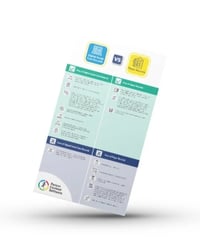While using paper offers initial cost advantages, electronic records provide unique advantages to care providers including efficiency, accessibility, enhanced security and more. The associated cost is a minor drawback compared to the wide range of advantages that digital systems have when it comes to providing outstanding personalised care.
As leaders in the connected care software and services space, we're seeing digital records increasingly replace paper records as care turn to electronic records as a solution. Want to start digitising social care and replace traditional paper records and instead introduce digital systems to capture electronic data? Speak to us today!








.webp?width=80&height=80&name=HTD%20Awards%202023%20Badge%20(4).webp)














